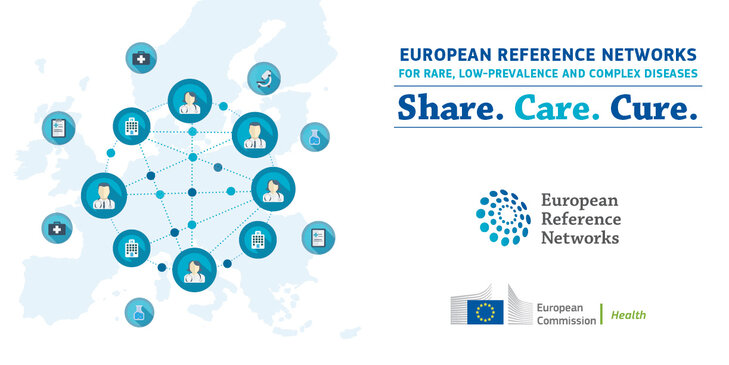European Rare dIsease research Coordination and support Action (ERICA) Project, has been evaluated positively, with the involvement of the 24 ERNs for building on the strength of the individual ERNs and create a platform that integrates research and innovation capacity

ERICA will promote inter-ERN research activities and establish firm collaborative ties with existing European and international infrastructures and consortia involved in rare disease research and innovation. ERN-EuroBloodNet will coordinate WP3-Patient Centred Research in close collaboration with Orphanet.
Rare diseases are defined as diseases that affect not more than 1 person per 2000 in the European population. However, while individual rare diseases affect only a small percentage of the population, they collectively affect up to 30 million people in the EU. With the objective to facilitate access to high quality cross-border healthcare and promote and foster cooperation on rare disease healthcare between member states, the 24 European Reference Networks (ERN) were established by the European Commission last 2017.
In this context, the European Rare dIsease research Coordination and support Action (ERICA) project has been invited for the grant preparation phase under the call H2020-SC1-BHC-2018-2020 (Better Health and care, economic growth and sustainable health systems), with the participation of all the 24 ERNs.
The aim of ERICA is to establish a structural framework in support of the research activities of the ERNs. ERICA will promote inter-ERN research activities and establish firm collaborative ties with existing European and international infrastructures and consortia involved in rare disease research and innovation. The formation of this coordinated support structure will stimulate clinical research activities and leverage the cost efficiency of rare disease research in Europe and beyond, contributing to earlier diagnosis and better management for patients with rare diseases and conditions.
Through integration of ERN research activities, outreach to European research infrastructures to synergistically increase impact and innovation ERICA will strengthen the research and innovation capacity of the ERNs. This will result in safe, accessible and efficient access of therapies for the benefit of patients suffering from rare diseases and conditions.
From ERN-EuroBloodNet, María del Mar Mañú Pereira (Vall d'Hebron Hospital campus) is coordinating "WP3 Patient Centred Research" in close collaboration with Ana Rath (Orphanet). The general aim of WP3 is to facilitate the Europe-wide implementation of standardized Patient-Centred Outcome Measures (PCOMs) and Patient Reported Outcome Measures (PROMs) for rare diseases while ensuring the involvement of the patient community in their development and validation process, including:
· The creation of a central repository of (validated) common and domain specific RD PCOMs/PROMs for ERNs
· The definition of priority areas for future PCOMs/PROMs development
· Supporting ERNs in the implementation of validated instruments for PCOMs/PROMs
ERICA is coordinated by Alberto Pereira (ENDO-ERN coordinator). Looking forward to develop this project together!
